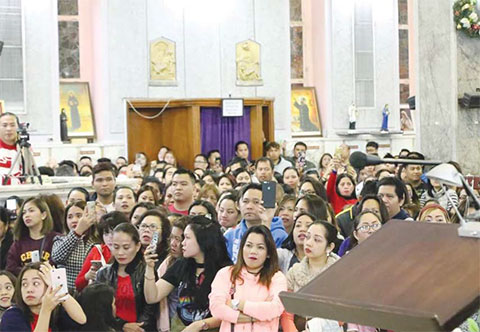We are not blessed if we are greedy, angry: Catholic priest
KUWAIT: Except for the Eastern Orthodox Church which celebrates Christmas on Jan 7, Christians all over the world mark Christmas today. In Kuwait, some Christians observe Christmas through prayer services at various churches at midnight (the eve of Christmas), leading to the traditional sharing of gifts. Filipinos in Kuwait have a unique tradition in anticipation of Christmas Day.
For nine consecutive days, they visit churches and attend devotional Mass (Simbang Gabi) in the belief of a more prosperous life in the years ahead.
There are about 250,000 Filipinos in Kuwait. The Catholic Church in Kuwait has three churches - the Holy Family Cathedral in Kuwait City, Our Lady of Arabia Church in Ahmadi and the Saint Therese Church in Salmiya.
These churches had schedules of nine days of Christmas Mass, which began in the early hours (4:30 am - 6:00 am) from Dec 16 to Dec 24. The Salmiya compound had additional church services, or what it calls anticipated Christmas Mass, from 9:00 pm, also for nine consecutive days.
All three churches were packed with Filipinos during these nine days. In his message during the last day of ‘Simbang Gabi’ yesterday, Father Monching Atanacio urged attendees to focus more on the love of God and not on gifts or material blessings. “Mary was full of grace because she followed God,” he said. He urged Christians to follow the model of Mary (the mother of Jesus) and why she is considered blessed. “People are not blessed if they are greedy, full of grudges and have anger in their hearts. They do not know how to forgive - they prioritize money, power and fame instead,” he said.
Christmas is not an official holiday in Kuwait, although some companies give the day off to Christian employees to celebrate with their loved ones, families, friends and community, with joyful carols, food and various fun activities, as long as it does not disturb the peace and harmony with others. Kuwait’s constitution guarantees non-Muslims’ absolute freedom of belief and the right to practice religion in accordance with its established customs.
By Ben Garcia











